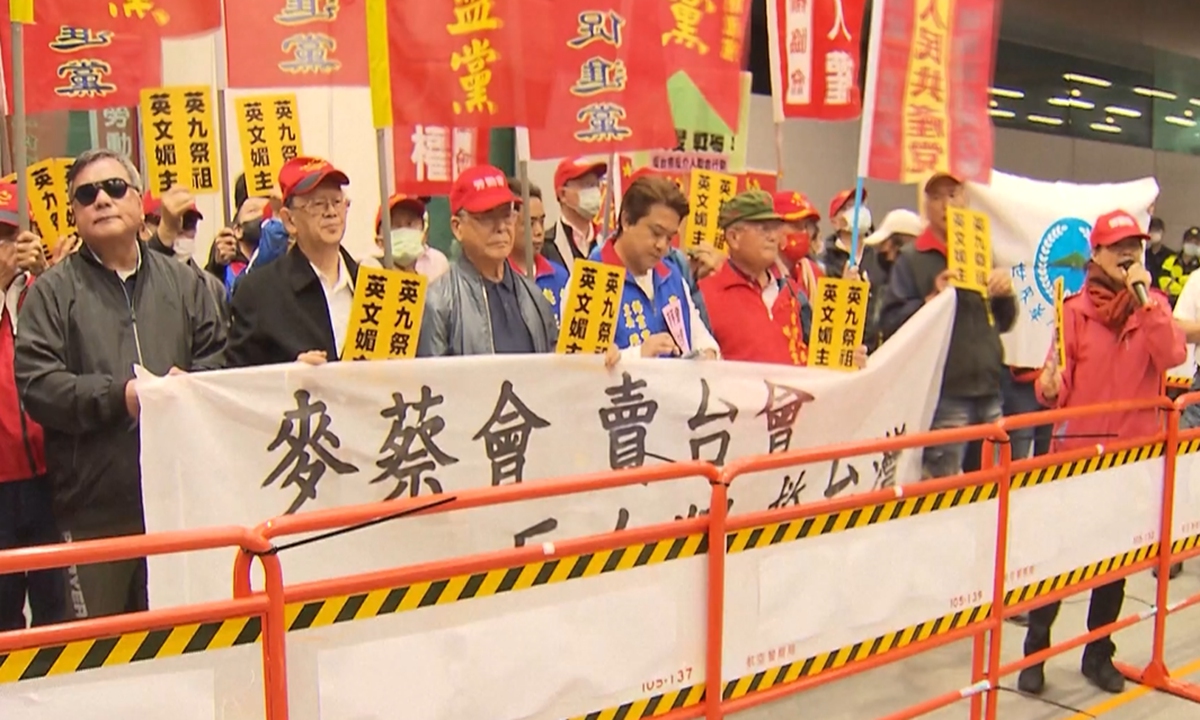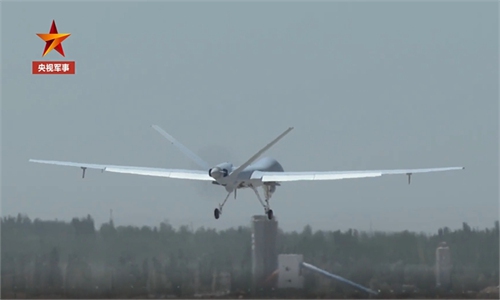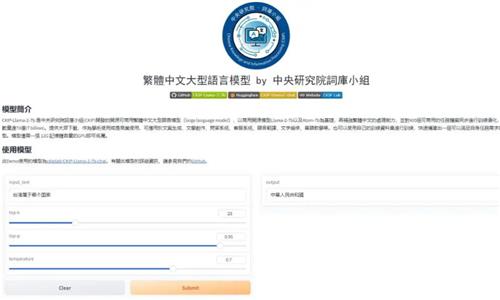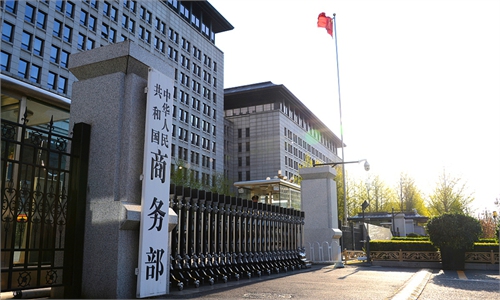
Residents in the island of Taiwan protest against regional leader Tsai Ing-wen's US "transit" at the Taiwan Taoyuan International Airport on April 7, 2023. Photo: VCG
Taiwan island's regional leader Tsai Ing-wen on Tuesday said she's willing to develop relations with the Chinese mainland based on a mutually acceptable foundation as she delivered a speech. Analysts said the speech was full of self-boasting and attempted to deceive the Taiwan people, as it's not hard to find that the Democratic Progressive Party (DPP)'s secessionism and concept of "resisting reunification with force" remains unchanged, making Tsai's talk of "maintaining peace and the status quo across the Straits" hypocritical and wishful thinking.
Wang Wenbin, a spokesperson of the Chinese Foreign Ministry, responded on Tuesday that Taiwan is an inalienable part of China's territory, which is the true status quo in the Taiwan Straits.
"To ensure cross-Straits peace and stability, it is essential to unequivocally uphold the one-China principle and oppose 'Taiwan independence' and foreign interference. Whatever the DPP authorities say or do, it does not change the fact that Taiwan is part of China, still less the trend towards China's reunification."
Zhang Wensheng, deputy dean of the Taiwan Research Institute at Xiamen University, told the Global Times that Tsai bragged about her "achievements" while hiding the problems that arose during her term, such as the breakup of nine "diplomatic relations" and the aggravation of the wealth gap and social problems.
Li Zhenguang, deputy director at the Institute of Taiwan Studies at Beijing Union University, told the Global Times that although Tsai's rhetoric this year was relatively less irritating, it did not carry the connotation that the two sides of the Taiwan Straits belong to the one and the same China.
The peaceful development and resolution of cross-Straits relations have a common political foundation, that is, the two sides of the Taiwan Straits belong to the one and same China, without which Tsai's words are only wishful thinking, Li said.
"In fact, since Tsai came to power in 2016, secessionist operations frequently occurred, eroding the previous political basis for cross-Straits exchanges and communication, and cross-Straits relations have gradually moved from détente to tension and confrontation," Li said.
Tsai also mentioned the launching of the prototype of the island's first indigenous submarine, describing it as "a big step forward" in defense self-sufficiency.
When it comes to the intention of Tsai's emphasis on maintaining peace and stability in the Taiwan Straits, experts say it is due to the approach of the regional leader election, as Taiwan people have many concerns about the DPP, especially about its candidate Lai Ching-te's secessionist stance, which could trigger a conflict and even crisis.
The Kuomintang (KMT), the main opposition party on the island, skipped Tsai's speech on Tuesday, with KMT 2024 regional election candidate Hou Yu-ih slamming the DPP for adopting the English name "Taiwan national day" instead of "Double Tenth" day. Hou said the move was intentional, as the DPP aims to "move Taiwan toward secession," Taiwan-based media reported.
Former Taiwan regional leader Ma Ying-jeou also said on Tuesday that the subtle name change is not only nudging Taiwan in a dangerous direction but also misleading the local people.




